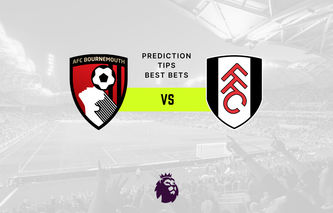The concept is simple: your team needs to either cover the spread or fall short. For example, if you believe Manchester City will win but not by enough to cover the spread, you can place a bet on that. If they win by fewer than 2 goals, you win the wager. This approach works similarly for betting on underperforming outcomes in football matches. This is one example of how online betting works.
What is sports betting?
Sports betting is the practice of predicting the outcome of sports events and placing a wager on the result.
It involves analysing the performance of teams or athletes and placing bets with a bookmaker, who sets the odds reflecting the probability of different outcomes.
In the UK, sports betting covers a wide range of sports, including football, horse racing, cricket, and tennis, allowing enthusiasts to engage with their favourite sports in a thrilling and potentially profitable way.
How does sports betting work?
Sports betting works by allowing individuals to place wagers on the outcomes of sports events. Here's a simplified breakdown of the process:
Choosing a bookmaker: Select a reputable bookmaker or betting site where you can place your bets. In the UK, popular options include Bet365, William Hill, and Ladbrokes.
Creating an account: Sign up for an account with your chosen bookmaker, provide the necessary details, and verify your identity.
Depositing funds: Deposit money into your betting account using various payment methods like credit/debit cards, bank transfers, or e-wallets.
Exploring betting markets: Browse the available betting markets, which include different sports, leagues, and types of bets such as match outcomes, over/under, and handicap betting.
Placing bets: Choose the event you want to bet on, select your bet type, enter your stake (the amount of money you want to wager), and confirm your bet.
Understanding odds: Odds represent the probability of an event happening and determine how much you can win. They can be displayed in fractional (e.g., 2/1), decimal (e.g., 3.0), or American (e.g., +200) formats.
Watching the event: Follow the event you’ve bet on to see if your prediction is correct. Many bookmakers offer live streaming services for various sports.
Collecting winnings: If your bet is successful, your winnings will be credited to your account. You can then withdraw the funds or use them to place more bets.
Understanding betting odds
Understanding betting odds is crucial for anyone looking to bet on sports, as they determine how much you can potentially win from a bet.
Here’s a breakdown of the different formats and what they mean:
Types of betting odds
Fractional odds:
Commonly used in the UK, fractional odds are displayed as two numbers separated by a slash (e.g., 5/1).
The first number represents how much you will win from a stake equal to the second number.
For example, 5/1 means you will win £5 for every £1 you bet, plus your original stake.
Decimal odds:
Popular in Europe and Australia, decimal odds are shown as a single number (e.g., 6.0).
This number represents the total payout, including the original stake, for every £1 bet.
For example, 6.0 means a total return of £6 for every £1 staked, which includes £5 in profit and your £1 stake.
American odds:
Used mainly in the United States, American odds can be either positive (e.g., +500) or negative (e.g., -200).
Positive odds show how much profit you will make on a £100 stake. For example, +500 means you will win £500 on a £100 bet.
Negative odds indicate how much you need to bet to win £100. For example, -200 means you need to bet £200 to win £100.
Calculating payouts
Fractional odds example: If you bet £10 at odds of 5/1, your profit would be £50 (5 x £10), and your total return would be £60 (including your original £10 stake).
Decimal odds example: A £10 bet at odds of 6.0 would yield a total return of £60 (6.0 x £10), which includes £50 profit plus your £10 stake.
American odds example: A £100 bet at +500 would return £600 (£500 profit plus your £100 stake). Conversely, a £200 bet at -200 would return £300 (£100 profit plus your £200 stake).
Implied probability
Odds also reflect the implied probability of an event occurring:
Fractional odds: The formula to calculate implied probability is Denominator / (Numerator + Denominator). For 5/1 odds, it’s 1 / (5+1) = 0.1667, or 16.67%.
Decimal odds: The formula is 1 / Decimal Odds. For 6.0, it’s 1 / 6.0 = 0.1667, or 16.67%.
American odds: For positive odds, the formula is 100 / (Odds + 100). For +500, it’s 100 / (500+100) = 0.1667, or 16.67%. For negative odds, it’s Odds / (Odds + 100). For -200, it’s 200 / (200+100) = 0.6667, or 66.67%.
Bet types explained
When betting on sports, understanding the different types of bets is essential for making informed decisions. Here’s a guide to the most common bet types you’ll encounter:
Moneyline bets
A moneyline bet is the simplest form of betting where you wager on which team or player will win the game or match. The odds are set based on the likelihood of each outcome, with favourites offering lower payouts than underdogs.
Point spread bets
Point spread betting involves online wagering on the margin of victory. Bookmakers set a spread, and you bet on whether the favourite will win by more than the spread (covering the spread) or if the underdog will lose by less than the spread or win outright.
Over/Under bets (Totals)
In an over/under bet, you wager on whether the total points scored in a game will be over or under a specified number set by the bookmaker. This type of bet is popular for its simplicity and applicability to various sports.
Parlay bets
A parlay bet combines multiple bets into one. For the parlay to win, all the individual bets must be correct. While parlays offer higher payouts due to their increased risk, they are more challenging to win.
Teaser bets
Similar to a parlay, a teaser bet allows you to adjust the point spreads or totals in your favour for multiple games. This reduces the risk but also lowers the potential payout.
Prop bets (Proposition bets)
Prop bets focus on specific events within a game that are not directly tied to the final outcome. Examples include betting on which player will score the first goal or how many strikeouts a pitcher will have. These bets add an extra layer of excitement to the game.
Futures bets
Futures bets involve online wagering on events that will happen in the future, such as who will win the championship or which player will be named MVP. These bets often offer attractive odds but require patience as they are settled over a longer period.
In-Play bets (live betting)
In-play betting allows you to place bets on a game while it is happening. This dynamic form of betting offers constantly changing odds and various betting opportunities as the action unfolds.
Handicap bets
Handicap betting gives one team a virtual advantage or disadvantage to level the playing field. This type of bet is common in sports like football and rugby, where there might be a significant disparity between the teams.
Understanding these bet types can enhance your sports betting experience, allowing you to choose the right wagers based on your knowledge and strategy. Whether you prefer the straightforward nature of moneyline bets or the complexity of parlays, there’s a bet type suited for every kind of bettor.
Types of betting markets
Betting markets refer to the various options available for placing bets on sports events. Here’s an overview of the most common types of betting markets:
Match result (1X2)
The most straightforward market, where you bet on the outcome of a match. In football, for example, you can bet on a home win (1), draw (X), or away win (2).
Correct score
This market involves predicting the exact final score of a match. While challenging, it offers higher odds and potential payouts due to the difficulty of accurately forecasting the scoreline.
Both teams to score (BTTS)
In this market, you wager on whether both teams will score at least one goal during the match. It’s a popular option for football betting and is often combined with other markets for increased odds.
Over/Under goals
You bet on whether the total number of goals scored in a football match will be over or under a specified number, for example. Common benchmarks are over/under 2.5 goals, but other thresholds are available.
Handicap betting
Also known as spread betting, this market gives one team a virtual advantage or disadvantage to level the playing field. You bet on whether a team will win with the handicap applied.
Asian handicap
Similar to handicap betting but more complex, the Asian Handicap removes the possibility of a draw, offering whole, half, and quarter goal handicaps to provide more nuanced betting options.
First goalscorer
You bet on which player will score the first goal in a match. Variations include betting on the last goalscorer or a player to score at any time during the match.
Double chance
This market allows you to cover two of the three possible outcomes in a match (e.g., home win or draw, away win or draw). While the odds are lower, the increased chance of winning makes it appealing.
Draw no bet
You bet on either the home or away team to win, with the stake returned if the match ends in a draw. This market reduces risk by eliminating the draw as a losing outcome.
Total points
Common in sports like basketball and American football, you bet on the total number of points scored in a game, similar to the over/under goals market in football.
Outright markets
These markets involve betting on the outcome of an entire tournament or league, such as predicting the Premier League winner or the World Cup champion. They often offer higher odds due to the long-term nature of the bets.
Specials (prop bets)
These bets focus on specific events within a game that are not directly related to the final outcome. Examples include the number of corners, yellow cards, or the time of the first goal.
In-Play (live betting)
Live betting allows you to place bets on a game as it happens. Markets and odds fluctuate in real time based on the action, providing dynamic and immediate betting opportunities.
Accumulator bets
Also known as parlays, these bets combine multiple selections into one bet. All selections must win for the accumulator to be successful, offering higher payouts due to the increased risk.
Choosing an online bookmaker
Choosing the right online bookmaker is key to a good sports betting experience.
Start by checking their reputation, licensing, and reliability, ensuring they are regulated by authorities like the UK Gambling Commission.
Look for a wide variety of sports markets, competitive odds, and strong customer service.
Ensure they support your preferred banking options with reasonable fees and processing times.
Lastly, prioritize a user-friendly website or app for easy navigation and live betting.
For detailed reviews of UK betting sites and apps, refer to the guides available.
Sport-specific bookmaker reviews
Payment method-specific bookmaker reviews
You can also read our individual bookmaker reviews for a more in-depth guide to each betting site.
How to sign up to a betting site online
Signing up to a betting site is a straightforward process that typically involves the following steps:
1. Choose a reputable betting site
2. Visit the website or download the app
3. Locate the sign-up/register button
4. Fill out the registration form
5. Create a username and password
6. Agree to terms and conditions
7. Verify your account
8. Claim free bets and bonuses
9. Set up payment methods
10. Make your first deposit
11. Start Betting
Top considerations when betting on sports
Just like with everything, there are important aspects to consider before carrying out an activity.
With betting, we've put together a list of the top considerations you should think of before and during placing a sports bet...
Betting strategies
Developing effective betting strategies is essential for increasing your chances of success and managing your bankroll. Here are some popular strategies to consider:
Research and analysis
Successful betting often starts with thorough research. Analyse statistics, team form, player performance, and other relevant data. Stay updated with news and developments in the sports you are betting on, such as injuries, transfers, and weather conditions.
Bankroll management
Effective bankroll management involves setting a budget for your betting activities and sticking to it. Determine the amount of money you are willing to risk and avoid chasing losses. A common rule is to bet only a small percentage (e.g., 1-2%) of your total bankroll on each bet to minimise risk.
Value betting
Value betting involves identifying bets where the odds offered by the bookmaker are higher than the actual probability of the event occurring. This strategy requires a deep understanding of the sport and sharp analytical skills. Consistently finding value bets can lead to long-term profits.
Betting on underdogs
Betting on underdogs can be profitable if done wisely. Bookmakers often overestimate the chances of favourites, leading to potentially lucrative odds on underdogs. Look for situations where an underdog has a genuine chance of winning, such as when a favourite is underperforming or facing key player absences.
Specialising in specific markets
Focusing on specific markets or sports can give you an edge. By specialising, you can gain in-depth knowledge and spot opportunities that general bettors might miss. For example, you might become an expert in tennis or focus on in-play betting for football matches.
Arbitrage betting
Arbitrage betting involves placing bets on all possible outcomes of an event using different bookmakers to guarantee a profit regardless of the result. This strategy requires access to multiple betting accounts and quick reactions to changing odds. While it offers risk-free profits, opportunities can be rare and margins are often small.
Matched betting
Matched betting takes advantage of free bet promotions offered by bookmakers. By placing a bet on all possible outcomes using free bets and lay bets on betting exchanges, you can secure a profit. This strategy is popular among beginners and those looking to minimise risk.
Following professional tipsters
Many professional tipsters offer betting advice and predictions based on their expertise. Following reputable tipsters can provide valuable insights and improve your betting decisions. However, it's essential to verify their track record and be cautious of scammers.
Keeping records
Maintaining detailed records of your bets helps track performance and identify successful strategies. Record the type of bet, stake, odds, result, and profit/loss for each wager. Analysing your betting history allows you to refine your approach and learn from mistakes.
Emotional control
Betting with a clear mind is crucial. Avoid making impulsive decisions based on emotions or recent losses. Stick to your strategies and remain disciplined, even during losing streaks. Emotional control helps maintain a long-term perspective and prevents reckless behaviour.
By adopting these betting strategies, you can enhance your betting experience and improve your chances of making informed and profitable decisions. Remember, there are no guarantees in betting, so always gamble responsibly and within your means.
Betting laws in the UK
The UK boasts a well-regulated betting industry, primarily governed by the Gambling Act 2005, which ensures fair play, consumer protection, and responsible gambling.
The Act established a legal framework covering all forms of gambling, including online betting, sports betting, casinos, and lotteries. To oversee and enforce these regulations, the UK Gambling Commission (UKGC) was created. This body licenses operators, monitors compliance, and enforces standards to ensure fairness, transparency, and player protection.
All betting operators serving UK residents must be licensed by the UKGC, ensuring they implement measures to prevent financial crimes and promote responsible gambling.
Advertising by these operators is strictly regulated by the UK Advertising Standards Authority (ASA) to prevent misleading or harmful content, with a particular focus on protecting children and vulnerable individuals.
The legal age for gambling in the UK is 18, and operators must verify the age and identity of their customers to prevent underage gambling. Additionally, responsible gambling measures are mandated, requiring operators to provide tools for players to manage their habits and access support if needed.
Online betting operators must comply with the Gambling (Remote Gambling and Software Technical Standards) Regulations 2007, ensuring their systems meet high security and fairness standards.
Betting operators are taxed on their profits, contributing to regulatory and public health initiatives. Consumer rights are robustly protected, ensuring fair treatment and clear information about terms and conditions.
The UK’s regulatory framework balances the benefits of a thriving betting industry with the need to safeguard consumers and promote responsible gambling practices.
How to bet responsibly on bookmakers
Although knowing your sports helps, betting is primarily luck-based, so use these top betting tips to practice responsible gambling when placing a bet:
Limits: Betting sites allow you to set betting limits, i.e. limit how much you can bet in one session, a week, or a month.
Cashouts: You can withdraw your winnings quite easily from any betting site, preventing you from spending all of your winnings.
Help & resources: Betting sites provide access to resources for problem gamblers and point them to organizations that can help with gambling addiction.
Problem gambling organisations and charities in the UK
Organisation | Contact details |
|---|---|
24/7 Phone: 0808 8020 133, Live chat available on the home page | |
Phone: 0300 0300 111 |
The NHS Gambling Addiction page has detailed information on charities, trusts, and centres you can contact for help with gambling addiction. Plus, they have a lot of information on strategies for dealing with and preventing addiction in your day-to-day life. Click the link to access the page.
Frequently asked questions
Is it legal to bet on sports in the UK?
What is the best sport to bet on in the UK?
What is the easiest sport to bet?
How to bet on sports UK online?
What age is it legal to gamble in the UK?
How to sports bet for beginners?
How to sports bet successfully?
What are the top tips to sports betting?
What are welcome bonuses?
Editorial policy
Our editorial policy ensures thoroughly researched, accurate, and unbiased content through strict sourcing standards and diligent review by top betting experts and seasoned editors.
This process maintains the integrity, relevance, and value of our content for our readers.


.png)




